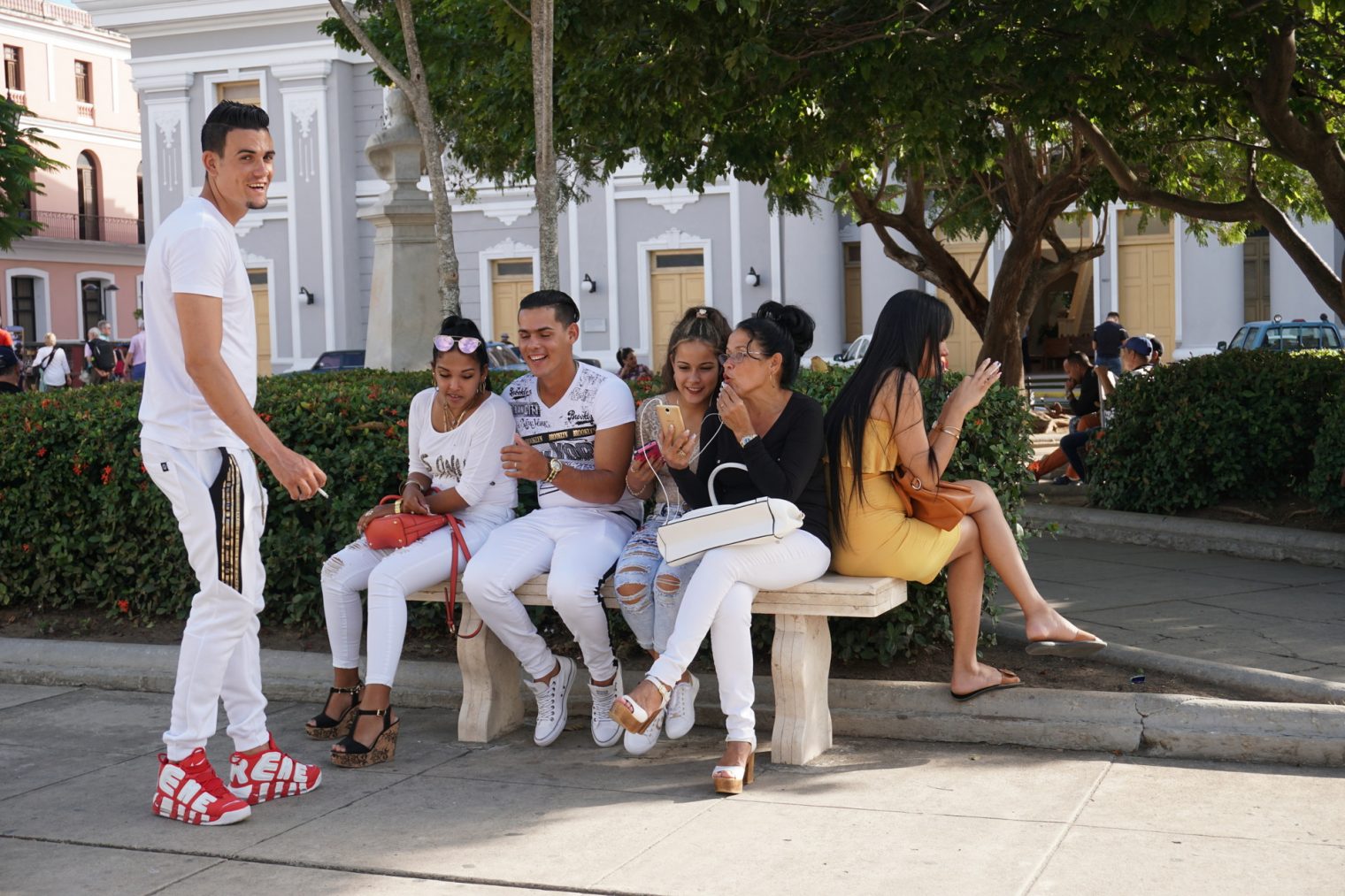Our guide in Havana said that Cuba has one of the world’s highest divorce rates and attributed this phenomenon to the real estate shortage. “People have to live with their in-laws and that leads to a lot of unhappiness.” Wikipedia backs her up on the ratio of divorces to marriages, which is indeed slightly higher than in the U.S.
(Since Cubans marry much younger than people in other countries, could the high rate simply reflect that people married at 18 are more likely to split up than people who marry at age 30?)
“Divorce was a scandal in the old days,” she explained. “Now it is easy because we have no money to fight over, just babies and always the mother keeps them.” What about the right to occupy, rent-free, real estate? The guide explained that the mother can always win that one too, but the right may not be permanent. “There were a lot of women coming to Havana from the east and marrying older men with nice houses, having a baby [double hand gesture of swollen belly], and then taking the house. Now they have the right to stay until the child turns 18, but they won’t own it if the man owned it before the marriage.”
What about child support profits after meeting a higher-income Cuban in a bar? “She can get paid if she knows who the father is,” the guide explained, “but she can’t get an apartment, only about 2 CUC per month maximum. [$2/month].” The child support formula is based on the father’s official earnings, which would be only $20-60/month and is a much smaller percentage of after-tax income than in the U.S. A child support plaintiff could collect $2/month, for example, from a physician earning $60/month (a 1/15th share), but wouldn’t get a share of the physician’s side-job earnings. Compare to New York or Wisconsin, where a plaintiff’s tax-free share of the doctor’s after-tax earnings will be roughly 1/3rd.
In looking at the above numbers, remember that Cubans don’t pay rent, tax, health insurance, college tuition, etc. That’s all included in the package of Cuban citizenship (into which immigrants are not invited!). Also, the $20/month that someone might earn is sufficient to purchase staple foods at subsidized prices via ration cards. Cubans who desire luxury items such as mobile phones need a second job, but those who are content with a basic standard of living apparently can survive on the official salaries.
Related:


A core idea of communism was to replace the family with the state, i.e., to organize society according to “scientific principles,” (rather than bourgeois institutions like the family) so the high incidence of divorce in Cuba is not surprising. The large support role of the state in America is probably a big reason for broken families largely among the poor and uneducated since if the state is going to provide why bother with having a father around? That leads to other problems, like wild young males, but the state is confident it will solve those problems too.
$20-$60 sounds about right for a programmer in silicon valley, after the rent, student loans, transportation, & insurance plans are taken out. I only made around $300/month 20 years ago & try not to look anymore.
“remember that Cubans don’t pay rent, tax, health insurance, college tuition, etc.”
Then who pays for this?
“Cuba has one of the world’s highest divorce rates ”
My second failed engagement was to a Cuban-born woman living in Miami who had emigrated to the US at the age of 3. Last I heard, she was on her third marriage.